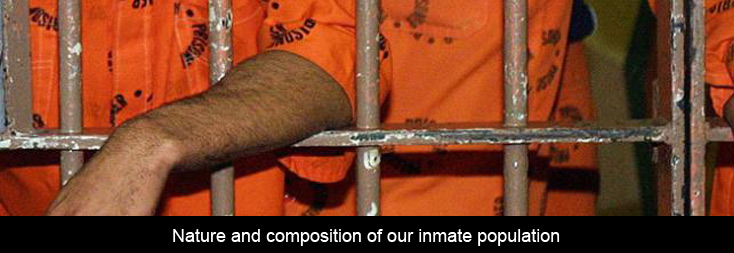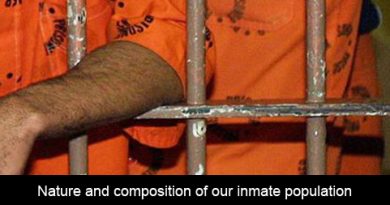Correctional Services minister calls on youth to pursue humanity instead of opulence
Chairperson of the African Renaissance and Correctional Services Minister Sibusiso Ndebele has called on the youth to pursue humanity instead of opulence.
Delivering the keynote address today (21 May 2013) at the Youth Pioneers Conference, as part of the 15th annual African Renaissance Festival 2013, at the Elangeni Hotel in Durban, the Minister said: “You are the generation of the future. Plan it. Dream it. Envision it. Live it.
“Often we worry that our youth, like the rest of society today, are taking into the culture of materialism: perhaps, more than seeking humanity, human values, Ubuntu, and the upliftment of the poor and those less fortunate.
“We get worried when, among our youth today, we have produced cultures of opulence such as we observe in a sub-culture called izikhothane. We get worried when, instead of getting on with the work whose foundations were laid by young people of the past in creating a non-racial, non-sexist democratic and united South Africa, we see sub-cultures of ostentatious display of personal wealth by young people, regardless of the method of acquisition, including through wearing expensive designer clothes, and even burning them as izikhothane are reputed to do, driving expensive cars and living by organizing expensive parties whose unstated aim is to show off their wealth.
“South Africa is a democracy today because of the radicalism of the youth of the 1940s, and because of the sacrifice of the youth of 1976. Many leaders, such as Nelson Mandela, made their impact during their years of youth, and their values have proved enduring and changed the world. People who swelled the ranks in the liberation struggle from the 1940s were the youth, who grew up in the struggle to make this country what it is today.
“The biggest challenge facing young people in South Africa today is that they are the generation who will inherit our land, after all of us who belong to yesterday. We, the older generation, always wake up with one question that is worrying us all: How well prepared are the youth of today to emulate the courage of a youthful John Dube who even, as someone hardly in his thirties, had built a school, in 1900, which still stands today; had started a newspaper in 1903, which still stands today, after more than a hundred years? Many more examples of youth determination, through purpose and sense of destiny, can be made. For Christians, Jesus Christ was 30 years of age when he fully engaged on his mission. At 12, he was already arguing with the most educated in the temple. Karl Marx was 26 when he read the Communist Manifesto; Lenin was 33 when he led the Russian Revolution in 1917; John Dube was 16 when he, on his own, boarded a ship to the United States – a country he did not know; Pixley ka Isaka Seme was 24 when he wrote his Vision called Regeneration of Africa, on which most thinking around the African Renaissance is founded; Mandela and Tambo were 32 and 31 when they spear-headed the 1949 anti-apartheid Programme of Action. Most of all, all of them valued education as the foundation for future action and success.
“We recall that the World Festival of Youth and Students was first organized by the World Federation of Democratic Youth, and the International Union of Students, in the wake of the Second World War in the 1940s. It was a reaction to the horror, and gross human riots violations and environmental depletion, caused by the war. The youth took a collective decision to organize themselves, globally, against international aggression and its destruction, advocating a world of peace, security, stability and prosperity where they will also make a significant contribution as youth. They denounced imperialism as one of the forces of control, domination, political and economic oppression in the world. This means that as the world was coming together to seek lasting solutions after the war, through the formation of international bodies such as the United Nations, the youth simultaneously seized the moment and decided to do something about the conditions of the people then.
“In our experience of prosecuting revolutionary change, or any drastic societal change, we can count three generations that emerge, namely:
1. The Great generation;
2. The Grasshopper generation; and
3. Re-Generation.
“The Great Generation gave their today for our tomorrow. They knew war, poverty, unemployment first-hand. They believed in hard work, and saving to make a down payment on a home. They ate what they planted or slaughtered, and lived within their means. The threats they faced were real, immediate, overwhelming and inescapable.
“The Grasshopper Generation consumed everything, without producing anything. They did not even maintain what they found, and allowed it to deteriorate in front of their eyes without a twinge of conscience or guilt. Indeed, destroying became heroic.
“The Regeneration believed in themselves, saw what had been lost or wasted, and started the process of regeneration, building all over, block by block. They built lasting structures that reminded many future generations about the nature and value of their inheritance. They reinvented lost democratic values, and walked in the footsteps of the Great Generation before them.
“We have it in ourselves to re-generate ourselves. The novelty of access to opportunity, which was denied to the majority, gave us a sense of arrival instead of the reality of a genuine beginning. Embarking on this regeneration will be with the heavy knowledge of lost time. That lost time should make us want to run, while the others walk.
“Are you the one who is coming, or should we wait for one or the other? This question was not difficult for John the Baptist to answer. It merely required honesty on his part. He answered that he was not, and spoke in awe of the one who was coming. So powerful and possessed of such greatness that he, as John the Baptist, was not worthy even to tie the shoes of the one who was yet to come.
“Not so with us. We can, as young people, regenerate our country, our peoples and our continent. Can you all say with confidence that: ‘We are the people we have been waiting for. There is no one else. There is no other time. It is us and it is now.
“The United Nations emphasizes the necessity of disseminating the ideals of peace, respect for human rights and fundamental freedoms, peace, solidarity and dedication to the objectives of progress and development among the young people.UN Secretary-General Ban Ki-moon said: ‘Today we have the largest generation of young people the world has ever known. They are demanding their rights and a greater voice in economic and political life. We need to pull the UN system together like never before to support a new social contract of job-rich economic growth. Let us start with young people.’
“Drug abuse is one of our greatest health, and social, problems. As the consumption of the dangerous concoction, known as nyaope, continues to wreak havoc in communities, substance abuse continues to pose a challenge for government and, most importantly, families. On 14th May, President Jacob Zuma visited Eldorado Park after parents wrote to him about a drug problem in the area. Our President heard from parents about how drugs were widely available, and led to children being hooked from a young age. We cannot allow drugs to dominate our lives, homes and communities any longer. We refuse to watch our children’s future being destroyed by drugs. We have to work together to fight and rid our communities of this unscrupulous epidemic. A partnership between government and communities will ensure that together we stop the rot of substance abuse.
“Referring to the rights, freedoms and duties of the youth in Africa, the African Youth Charter provides a framework to Africa, by relevant stakeholders in the youth sector, to support national policies, programmes and actions in favour of youth development. Article 26 of the Charter outlines the responsibilities of youth. Are you the generation that will complete South Africa’s integration with Africa? Are you the Generation that will demonstrate such re- integration by singing the AU song alongside your national anthem at special occasions such as those marking Africa Day? Are you the Generation we have been waiting for? If so, IGNITE.
“In the words of Kofi Annan: ‘No one is born a good citizen; no nation is born a democracy. Rather, both are processes that continue to evolve over a lifetime. Young people must be included from birth. A society that cuts off from its youth severs its lifeline,’” the Minister said.





